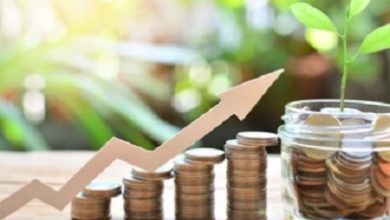
Economic meltdown is an unexpected event which can occur at any point and has no standard cycle. It can occur due to financial deregulation, like the 2008 great recession or it can occur due to an unexpected crisis, like the COVID-19 pandemic which the world is experiencing today.
The last meltdown occurred in 2008 which is well known as the Great Recession. It was the worst global recession since WWII. The recession was caused by deregulation in the financial industry. In fact, the economic slump began when the US housing market went from boom to bust, and large amounts of mortgage backed securities and derivatives lost significant value. The global recession that followed resulted in a sharp drop in international trade, rising unemployment and falling commodity prices.
Today, the world is experiencing a virus outbreak COVID-19. The virus has spread all throughout the world infecting about 42 lakh people and about 2.9 lakh people have died due to this disease. India alone has about 75000 infected cases and about 2500 people have died. The only way to contain this virus is by maintaining social distancing and good hygiene. To break the spreading cycle many governments around the world have enforced a complete lockdown bringing all activities to a standstill. Such a scenario has never occurred in history where the economy of the entire world is halted. This has led to a slowdown in economy and experts predict that the year will also face economic recession.
Story Then and Now
The Great Recession of 2008 was systemic and first took hold of the financial system. The recession of 2020 is a cyclical crisis caused because the economy was brought to a sudden standstill in response to a health crisis. In contrast, in 2008, the global financial crisis that hit the Indian financial sector and real demand, did not bring production to a halt. In the current scenario, the production has been brought to halt and caused a major impact on the supply chain. There is a lot of uncertainty in the economic growth in today’s time it could be much shorter and quicker V cure recovery when compared to the 2008 recession.
In 2008, despite the global crisis healthcare industry in India was deemed recession proof. The industry was at its peak not only in the healthcare delivery, research and development but also in the field of medical tourism, pharmaceuticals, health insurance, medical transcription and clinical trials.
Healthcare sector in 2008 was about 45 billion USD and in 2020 it was expected to reach 280 USD. So we can see this exponential growth the industry has taken over a period of time.
No matter what the economic or market conditions are healthcare is a sector which can truly stand the test of time and recessions. It fared well during the global meltdown of 2008 and will do so even in today’s time. A large part of India’s economic growth has focused on “outsourcing” or “off shore” business. In fact, 80 per cent of medical devices and consumables in India are imported. Most of the PPE masks, ventilators, diagnostic kits is imported from China. This over dependence on China for supplies has cost the industry trouble today. Hopefully, the government will look at the needs of Indian manufacturers and take a step more in the direction of truly make-in-india products.
Another market which has been hit heavily due to this pandemic travel restrictions is the medical tourism market. Every year a million people travel to India for medical tourism generating over 3 billion USD per annum in forex. This market is growing at 22% CAGR and was expected to reach USD 6 billion by the end of 2022, generating valuable forex, large-scale employment and profitability for our healthcare sector. However, the Covid-19 pandemic and complete ban on travels has affected this market which has seen about 10-40% of their revenues erode.
Recession and Recovery
Experts believe there will be a negative impact on consumer spending and fear of infection but only related to elective services like cosmetic and allied surgeries rather than the necessary part which includes cardiac or neurological disease treatment. Other treatments would be deferred to better times.
The lack of liquidity may affect the market for medical devices because hospitals may not wish to commit large funds which could be better utilised in creating patient-pull.
Typically, the healthcare industry will spend smart. Like in the current situation when the liquidity is less, hospitals will maintain their capex and look at areas of cost-reduction. The hospitals will be really cost-cautious and focus on functioning efficiently.
With the costs of imports going up, experts believe that a number of domestic companies would evolve. This is evident from the large number of innovations that have spured in managing Covid-19 patients. From low-cost devices and equipment to PPEs industry is trying to reinvent and provide for the situation. Experts also believe that there could be consolidation of smaller players through acquisition by larger players who have a strong sales, distribution and support network. MNCs would also look to acquire smaller niche companies for product diversification and lower pricing advantages
As Raghuram Rajan, former governor of RBI said,“India reforms only in crisis”. Hopefully, India will learn its lesson and we may see a larger investment in the healthcare sector not only in creating infrastructure but also capacity through people and equipment.




